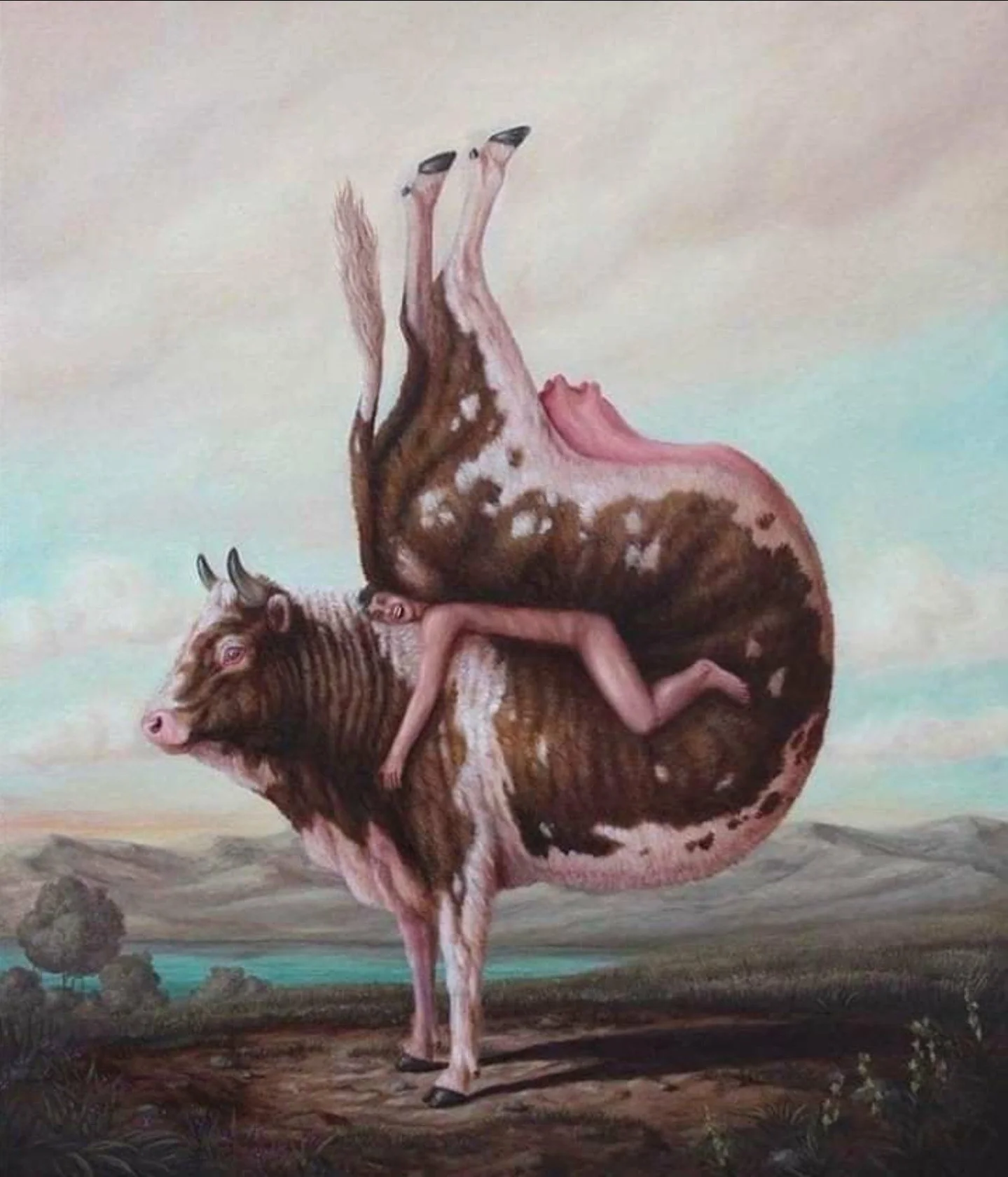Thank you 🙏
I had the distinct misfortune of being a loner for my formative years. As I’ve aged, I never hit my stride or found my niche. I have plenty of hobbies and things I enjoy, but no place to share them… even if I find a convention or rare place to explore them with others, they are often filled with people who already found their people and aren’t seeking any new applicants. Or, more likely, these places are far from where I am.
It then returns the burden to me. Do I keep my job and pay and current possessions… or do I sell all of it and move closer to the places I can find others? No, not even that: give up stability and security for the chance to find places to find others. Not even guaranteedz
Sometimes I travel a long way to put myself in a situation I think will may result in meeting like minded people and then when I get there I do nothing but look around a bit and then go home.
It happens so often! You break out of the comfort zone and spend resources and energy to make the effort, only to have nothing to show for it. Coming away with something (or someone!) is never the intended goal, but you’d feel better if you did, right?
even if I find a convention or rare place to explore them with others, they are often filled with people who already found their people and aren’t seeking any new applicants
Any group like that doesn’t deserve your awesomeness my fellow person ✊.
You know it’s hard to believe those kinds of words. But I appreciate it all the same. ^^
Removed by mod
More now than ever, you find people that are takers and not givers. I was raised that if you were kind and generous, that you would attract others. But when everyone takes what you give, but gives nothing in return, you burn out and feel used. Once you have nothing left to give, they go away.
You’re only welcome if you have something to offer. If you have nothing, you are nothing in their eyes. Hi lighting the differences between us all is a worrying trend.
Removed by mod
I did have a lot more friends when I had a lot more money.
Interesting read and very relatable sentiment.
This part stuck out to me. When I was younger I often got myself into bad situations that presented opportunities form connections through shared experiences. As I get older I’m fucking up less and when I do it’s just me trusting myself and going through it alone.
To truly like a person, you need trust, and that requires emotional investment – an increasingly rare commodity as you age – so as old friends fade away, they cannot simply be replaced. The space to build trust with newcomers is just not there.
I think the unsaid part is just time spent together- when you’re a kid it’s easy to have dozens of hours a week to hang out and bond. As you age, there’s other time commitments - kids, spouse, family, maintaining a house, etc. In order to have that emotional investment you need to get past the awkward first stages of friendship.
I think a lot of people lose/drop their hobbies, or the things that let them bond and meet other people. It’s hard to say “I dropped football and now I lost 50% of male conversation” without more info. If all your friends are only bonding over football, yeah. So find other things to do! There’s a million of them, and people are always passionate about their own interests. Find people with similar interests.
The author also mentions “it feels like they’re always just someone’s partner” and that’s very telling. Are the only men you’re engaging with those who are partners of your own spouse? Well no shit you’re not feeling like you have friends. I like my wife’s friends partners, but they’re firmly in the acquaintance category.
It’s also the societal loss of “3rd places”. There’s home, work, and then… where else do you actually meet people? And if you do, where do you connect with them? Especially low-cost and not health-damaging like a bar…
time
I had a good friend move to the same small town I’m in. Between work and family, we don’t get together for months on end, even though he’s a 5 min drive down the road. We want to get together, but we’re both too exhausted and burnt out.
Eh. Not the best article but I appreciate the sentiment.
I certainly agree with it. I think that there’s a level of friendship that I never allow others to crack unless they were bridged in as members when we were young.
All the people I meet now are “acquaintances”. They’re nice, I’m okay to reach out if I need anything, but more often then not they’re the partner of someone else. I smile at them. I tolerate them. I might even have a drink with them. But there’s a distance there that you can’t crack.
It’s like that great 80s movie, “Stand by me”: “I never had any friends later on like the ones when I was twelve. Jesus, does anyone?” https://youtu.be/l7r-R61W1DQ
Not the best article
To be honest, I thought it was quite terrible.
deleted by creator
Not parent commenter but to me it’s just someone that writes well that is rambling and leads nowhere.
I guess the objective is not to answer but to think out loud and be relatable, so some might enjoy the read. I didn’t.
deleted by creator
I’m feeling it. I love my partner and my family but that’s the only real friends I have.
True male friendship is paradoxical, in that it is intimate without intimacy. Men neither touch each other physically nor discuss anything directly – what is said out loud is trivial and everything important is unspoken. If a subtext is identified, it’s quickly ignored before moving on, since no man wants to turn a subtext into an actual text over a few beers.
Is that true male friendship, though? Taking that flaky relationship and labeling it true friendship might be a contributing factor to see them not surviving the many ebbs and flows of life. My best friendships, the ones that are alive and well, are exactly NOT like that.
That’s a horse shit take on true friendship. I tell my close male friends that I love them, we bro hug, we’ve cried together. Maybe that take is true for a lot of men but that doesn’t make it any good.
It’s certainly something people have been taught is true male friendship and it can be difficult to unteach. One major contributor to this that I feel like I’ve experienced in my own life is how much extra mental labor it seems to take to navigate the masculine expectations of any given male relationship. I feel like things are fairly easy when you know you’re on the same page with the other person but it can take a significant amount of time to suss that out. Until you do it can be difficult to feel like you can operate on a level where you are ALLOWED to make the subtext textual.
i think it’s really simple… we don’t gather in order to accomplish things together… not in the real world, solving real problems… men become friends when they solve problems and build things together… think barn building among the Amish… and we basically can only drop the competitive thing if we’re trying to work together, but then we get right to work… and that’s our normal socialization… when we see one another, we immediately like to reminisce about something we fixed or conquered together… back in my grandfather’s day, they spent free time at the men’s social club, to brag about exactly that and drink and play cards all evening… we haven’t figured out how to replace that stuff… so we’re all just adversaries all the time, learning how to get better at combat and shit…
Try finding a public boardgame night instead of a gentleman’s club - both the library and the game store have them here.
right, games are the current substitute… many men aren’t interested in games, because there’s nothing real about them, and i don’t think it really suffices as a substitute in general…
I can both attest that this works, and that it sucks when you move and there aren’t any around you anymore.
I think part of this is a result of toxic masculinity issues. I remember reading a comment by a trans man on how his friendships had changed after he transitioned, and while part of it was how his friendships changed with women he had been friends with before he even transitioned, he also talked about how his friendships with men were missing a major part that had made his friendships with women before he transitioned so deep - and that was emotional vulnerability. Similar to what you’re saying, he found that it generally isn’t socially acceptable for men to form true, emotional connections with other men outside of scenarios that emulate life or death situations. Things like hunting, or sports that were originally created to keep soldiers fit outside of war are acceptable situations for men to build that camaraderie. Outside of these kinds of scenarios though, men aren’t allowed to be emotionally vulnerable with each other and make true friendships that go beyond a surface level, leaving them emotionally isolated and stunting their emotional growth and well-being. He also theorized that this is probably why men mistake women being friendly as them being flirtatious since women have that deep emotional connection in all their friendships, while men are only really allowed it with romantic partners, but that’s outside the scope of this conversation.
In my teenage years I distanced myself from all of my friends after they started to get into hard drugs and I got in a long-term relationship. I didn’t know any better and my world centered around my then partner so I didn’t even try to make new friends; after 5 years, we broke up and I moved countries twice, and when I returned home, I felt I didn’t belong anywhere, moved town a few more times and have never managed to make lasting friends… I honestly think there’s something wrong with me…
That’s just how it is today dude. I grew up in rural Canada and had friends till I graduated. Then I moved to Calgary for college then to the coast for work. My other friends went elsewhere. I haven’t had true friends in probably 8 years now.
Same here. Moving cities is much more common nowadays and it’s almost guaranteed a hard reset on friendships. Even if put in the work of keeping in touch, distant friendships are not as fulfilling as present ones anyway.
I think it’s that way because of the world today promotes mental health issues. People are embarrassed about their life if they are not doing well and governments like to keep it that way.
I think there are too many people and we are pretty much existing as just leeches
All it takes is staying in touch to continue being friends. I have a bunch of people from grade school I’m still friends with. My high school friends are still there too. Any one of us can pick up the phone or shoot a random text at any time like we just chilled last night.
Do we all get together and go to the bar or something every weekend? No of course not. No one has the time or even wants to do that anymore. Am I still friends with everyone from my groups of buddies back in the day? No. And that’s completely fine.
Perfect example is last night a good friend of mine I haven’t seen in years and only talked to a couple times since like 2013 called me. He called me just to tell me a joke and the punchline was hanging up suddenly. He called me right back and we had a good laugh. We probably won’t talk for a few years from now. Who knows. It doesn’t matter.
Say hey man how’ve you been to an old friend. That’s all it takes to stay friends.
Paywalled.
Why men lose all their friends in midlife
At some point it becomes suddenly, disconcertingly clear that we have very few pals left
By George Chesterton 24 July 2023 • 8:00am ‘I’m both envious of those who appear to have lots of friends and suspicious of how they’ve acquired them’
Five times a year. That’s how often I see the friends I have left. It feels like slim pickings for a man with my winning personality. What happens to male friendship in middle age? The question comes with a pang. Am I missing out, or deficient in some way? I mean, I have plenty of friends. Well, I have a decent number of friends. OK, I have a few friends.
I’ve talked myself into a kind of loneliness that’s hard to justify given that I’m surrounded by so much familial love. (“Poor widdle me,” as Kim Jong-il once sang in Team America.) I’m both envious of those who appear to have lots of friends and suspicious of how they’ve acquired them.
“Friends” is a dominant theme of the cliché-industrial complex, appearing in an endless feed of Facebook platitudes and Instagram posts. Taylor Swift said, “All you need to do to be my friend is like me”, which is either very profound or very stupid. Let’s assume it’s the former and that a definition of friendship is unconditional affection, rather than needy sycophancy. If I’m Billy No Mates, and Taylor is correct, then it means I don’t like many people and they don’t like me. So I appear to have brought this on myself.
This phobia of being clubbable is perhaps best expressed in a passage from Joseph Heller’s novel Catch-22, when Colonel Korn finally consents to send Yossarian home from the war on one condition.
“What must I do?”
Colonel Korn laughed curtly.“Like us.”
Yossarian blinked. “Like you?”
“That’s right,” said Colonel Korn. “Like us. Join us. Be our pal … Become one of the boys. Now, that isn’t asking too much, is it?”
“That isn’t going to be too easy.”
To truly like a person, you need trust, and that requires emotional investment – an increasingly rare commodity as you age – so as old friends fade away, they cannot simply be replaced. The space to build trust with newcomers is just not there.
Most often your partner becomes your best friend by default, which is no bad thing, while an imperceptible drift from sociability takes place over the years – sometimes it’s because of children, sometimes physical distance, sometimes lifestyle choices, like religion or polyamory.
Lasting significance
It doesn’t help that three of my oldest friends are currently unavailable. Of the men I spent most of my youth and young manhood with, one is in Los Angeles, another lives an alternative lifestyle in Devon and the third joined me in a spectacular falling out that killed our 30-year relationship overnight (mostly my fault, naturally).
It’s easier to be blasé and picky when you are young. There are so many friends to choose from and so many relationships you can roll into and out of again without the sense of any lasting significance. Having so few friends can’t be foreseen at 21, but maturity nudges out the immediate need, with the hours dominated by family and work. Once-intense friendships blow up or become diffuse, yet I still see other men managing it better than me.
Moments of envy that other men my age have armies of besties are countered by the cynical assumption that to have so many must mean a decent proportion are false or flimsy in some way. If friendship means something, then how can it be so effortless for these mysteriously popular men, who dangle their mates like an ageing hipster’s neck chains?
The more I witness friendship groups treating Glastonbury like a middle-aged Christmas (“only six sleeps to Glastonbury”), the less I want to know. It’s the fun that really puts me off. I carry the remembrance of festivals past, which is enough to dissuade me now. It’s great if 250,000 people want to enjoy music and drugs in a pop-up town with less diversity than Antiques Roadshow, but don’t sell it to me as a return to Eden. This is the kind of sentiment that evinces comments such as “I feel sorry for you”. They’re not necessary. I already feel sorry for myself.
Design and necessity
Apparently there is a dire need for a safe space for men, which is a bit like saying grey squirrels need a safe space from red ones. But I would concede there is a particular state of ease that’s only possible for men among other men.
There is also consolation that with those few friends you have left, months or even years between meetings are written off with the wave of a hand. Just as well really. This is when you notice the unfettered affection and loyalty male friends feel for each other. It’s kept simple by design and necessity.
Having lost interest in football I’ve destroyed 50 per cent of my conversation options – and I wasn’t exactly Bantersaurus Rex to begin with. Male bonding is sometimes little more than a home-cooked version of a radio phone-in on an infinite loop.
True male friendship is paradoxical, in that it is intimate without intimacy. Men neither touch each other physically nor discuss anything directly – what is said out loud is trivial and everything important is unspoken. If a subtext is identified, it’s quickly ignored before moving on, since no man wants to turn a subtext into an actual text over a few beers.
Like a lot of things about getting older, acceptance is the only meaningful response. My friends are real. My loneliness isn’t. It’s a product of a faulty memory and an ego that hasn’t yet burnt itself out. At least we have yacht rock to talk about. During those occasional and precious tribal gatherings, you all become carriers of each other’s memories, like the shaman or village poets who guard the oral history of your collective lives.
If you want lots of friends, you will probably have lots of friends. Therefore, if I don’t have many, I must not need many to begin with. Either that or I’m unbearable. Answers on a postcard, please. But don’t expect a friendly reply.
💀
I’m not sure how common my own experience is, but I’ve lost most of my friends from group toxicity. Not to have a messiah complex, but the whole reason my “friends” hung out for years was because of me and my parties. I stopped having parties and we were still just as close. As soon as I settled down with someone out side of the group, a few of them started causing problems to the point that I disassociated from the group.
Last year my wife and I went to a BBQ (that I had to be persuaded to go to by my wife, who took the brunt of the bullying) where they apologized for how they treated us. We thought everything was good. It came to light that we were not invited to their big get together this year. Then it was clear they were purposely excluding us from a ton of things. No one wished me a happy birthday, though they knew when it was, and my “best” friend regularly travels a hundred miles to another friend’s house that is 10 miles away, but I haven’t seen him since his birthday, which I traveled a hundred miles away for.
It’s sad feeling the bridges are burned, but I would much rather spend time with my family than the friends that justify hurting my family.
can’t lose them if you never had! check mate life !
I think you reach a point where you no longer have to prove anything to anyone. If you no longer need an audience, then why hang out with them?
Look at the people who surround themselves with an entourage, how insecure are they?
If you no longer need an audience, then why hang out with them?
Oof, I hope you don’t really believe that. Aside from “attention” that you get with friends, you should also get compassion, empathy, and love. And sometimes it’s just nice to have companionship.
Friends are a lot more than an audience to prove things to, though.









